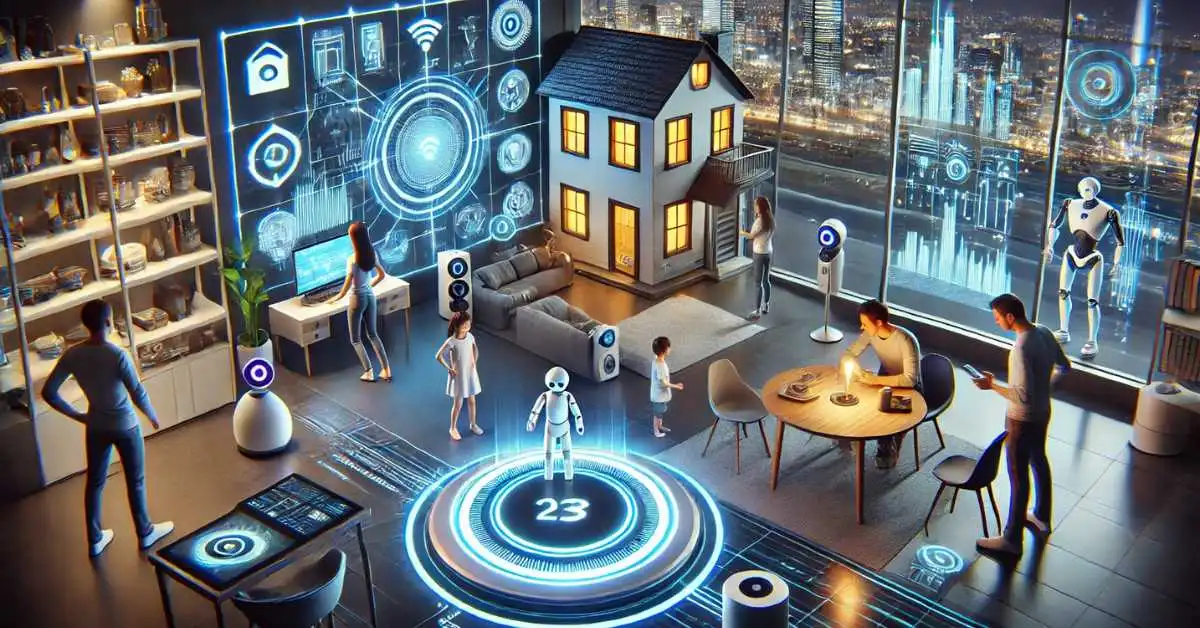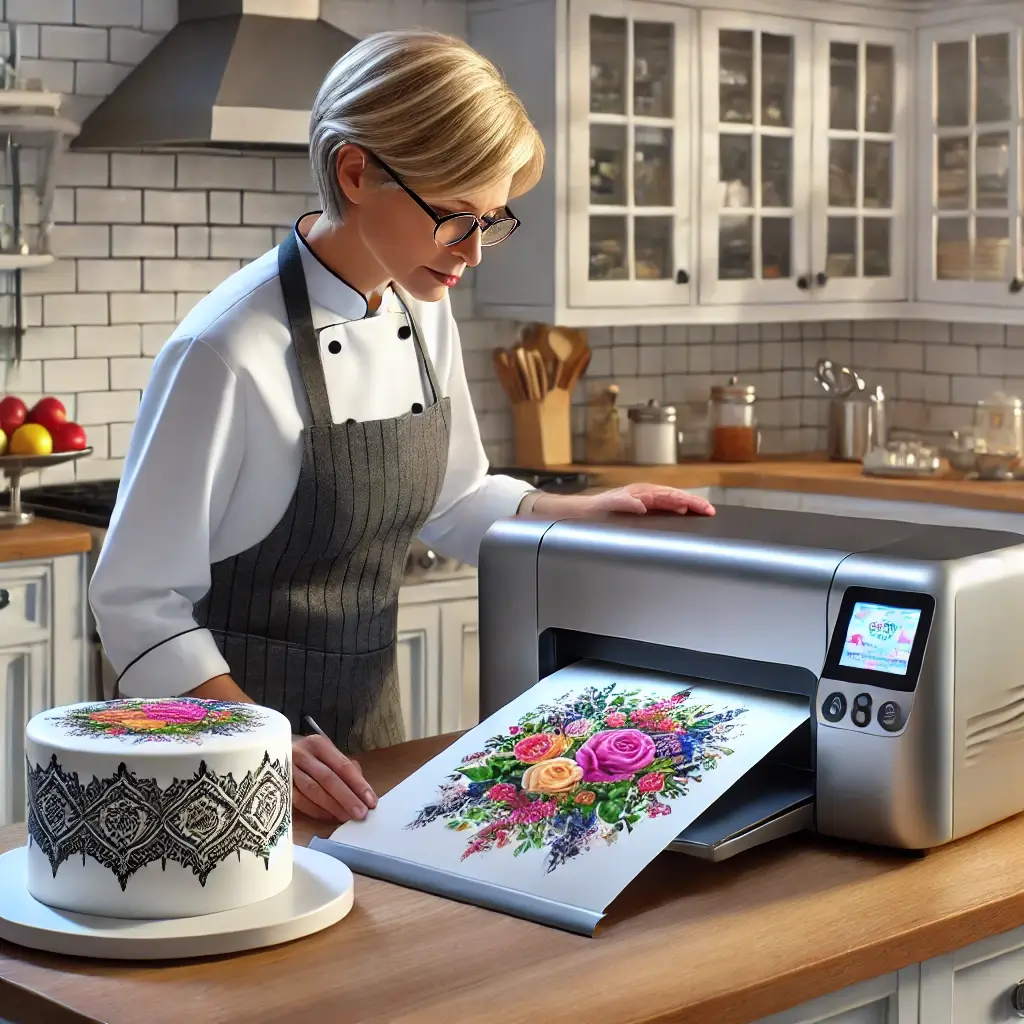Introduction
General technological advancement over the coming decade will transform ordinary homes into the future of smart homes. Modern residential buildings now offer complete automation which began with initial voice commands capabilities. Upcoming technology facilitates what new system changes? The boundaries of smart homes are endless because these systems utilize both AI control of automation functions and renewable energy systems. Future research investigates modern patterns that guide smart home development as they advance to their future state.
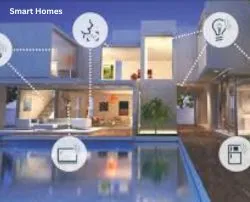
The Evolution of Smart Homes
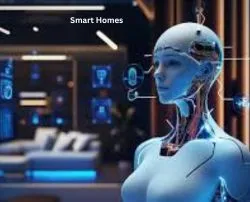
From Smart Assistants to Fully Automated Homes
Technology introduced wireless voice assistants through the release of Alexa and Google Home devices. Future of smart homes in 2030 will monitor our needs before automatically making modifications without requiring any human supervision.
The Role of AI and Machine Learning
The combination of AI with ML operates as central forces which enable contemporary advanced home technologies. Technology devices implement these systems to collect user information and optimize power consumption while predicting maintenance needs before equipment breakdown happens.
Integration of IoT in Everyday Life
All Internet of Things devices possess connectivity ability to share data with other linked appliances including security systems and both lighting control systems and entertainment devices. Through its network design the ecosystem achieves efficient and convenient system operations.
Key Technologies Shaping Smart Homes in 2030

AI-Powered Home Automation
All Future of smart homes automation functions such as heating regulation and home security and lighting control and entertainment devices in residences will be managed by AI systems throughout the year 2030. AI systems operating under personal service automation continue to adjust home environments through behavioral data collected from users.
Advanced Voice and Gesture Controls
Future of smart homes will implement voice command systems that let users carry out tasks through their spoken words only. The house will acquire the ability to understand human gestures and body expressions together with biometric information to carry out commands.
Smart Energy Management and Sustainability
The implementation of sustainable design starts at the initial stage of modern future of smart homes development. The energy management systems utilizing AI technology will establish optimal power usage methods which combine renewable solar panel systems with smart grids for efficient power conservation.
Enhanced Home Security and Cybersecurity
The future of smart homes advanced security systems use artificial intelligence to operate building surveillance using facial identification and biometric authentication for detecting entrance threats and digital breaches.
Smart Kitchen and Automated Cooking
The technological advancement of automated kitchen appliances provides users with easier ways to prepare their meals. Modern smart refrigerators store food records for inventory management and generate recipe ideas and execute automated shopping through internet commerce.
Future of Smart Entertainment Systems
Home entertainment technology will acquire virtual and augmented reality realism because AI runs the VR and AR systems that homes can reach by using gaming consoles and theatre systems.
Connectivity and Interoperability in Smart Homes

5G and Wi-Fi 7 in Smart Homes
Through the deployment of 5G networks together with Wi-Fi 7 technology devices will develop rapid automatic data communications with immediate response times and minimal delay.
Seamless Device Integration
Future of smart homes will unite all brands by creating a system that integrates devices from multiple vendors. The integration will do away with the requirement of various applications and different control centers.
Future intelligent homes shall merge all different brands into one unified system which links together numerous vendor devices. The integration eliminates the need for various applications along with different control centers.
The Rise of Edge Computing for Faster Responses
Edge computing for future of smart homes information processing reduces the time between users and devices which leads to more efficient service and no dependency on servers.
The Impact of Smart Homes on Daily Life

Personalized Living Experiences
The person keeping control over lighting and climate in a space will simultaneously have the power to alter security settings and personalize their choice of entertainment features. Each living situation can achieve personalized customization due to these strategies.
Improved Health Monitoring and Well-being
Health mobile applications along with wearable gadgets within smart healthcare allow patients to self-monitor their diseases even without consulting healthcare professionals or pulmonologists. Modern health gadgets provide clinical assessment of vital signs followed by safety analysis which enables this equipment to serve as a main tool in home medical care.
Smart Homes for the Elderly and Disabled
The wide acceptance among elderly populations of intelligent homes will occur because these homes will supply devices including autonomous power wheelchairs together with voice-command operation and AI-assistance for personal healthcare needs.
Challenges and Concerns in the Smart Home Industry
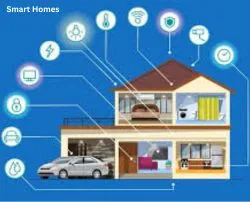
Privacy and Data Security Risks
The increase in connection levels appears to create life simplification but simultaneously raises cyberattacks and security breaches. The privacy protection of users requires equally essential both stronger encryptions intended for user privacy and artificial intelligence-based security systems.
High Costs and Accessibility Issues
The advancement of technology will bring about future of smart homes as the technology which will empower more people toward better lifestyles. Future of smart homes technology presents ongoing high implementation expenses because it needs costly hardware systems. Evolution of technology requires the development of affordable and efficient methods for automation which end-users cannot detect.
Compatibility Issues Between Different Brands
Deployment of future of smart homes systems faces a critical problem because there are limited standardized protocols currently available in the market. Standardization of the industry represents the essential path that enables different devices to connect and cooperate.
The Future of Smart Home Market and Industry Growth
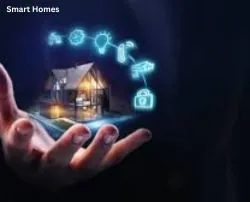
Expected Growth and Market Trends
Smart intelligent technology will experience a threefold increase until 2030 because AI advances, the Internet of Things advances, and the enhanced 5G network. The market will see wider adoption of smart technology since it both lowers costs and provides more effectiveness.
The Role of Big Tech Companies in Smart Homes
The intelligent house market will expand thanks to the natural integration of intelligent home technology between major web industry companies including Google, Apple and Amazon.
Government Regulations and Policies
Future of smart homes will result in governments developing additional guidelines to protect privacy while maintaining fair competition conditions throughout markets.
Conclusion
The operation of homes during 2030 will experience a transformative evolution by adopting state-of-the-art IoT and AI and 5G technology. The present difficulty of achieving future of smart homes will transform into a promising future for worldwide homeowners in upcoming years.
FAQs
1. What is the most exciting smart home technology coming in 2030?
The two leading technological breakthroughs of automation will be AI-driven and edge computing as these systems deliver direct data control and custom services.
2. Will smart homes become affordable for everyone in the future?
The smart home technology will benefit from economy of scale alongside advancements in technology.
3. How will AI improve home automation by 2030?
AI will establish predictive automation through user behavior learning to optimize energy use and security features and convenience functions which serve as its main core component.
4. What are the biggest challenges for smart homes in 2030?
The smart home sector requires solving’s of privacy concerns and protects itself from cyberattacks as well as resolving brand-to-brand interface incompatibilities.
5. How can I prepare my home for future smart technologies?
State-of-the-art modular and flexible smart devices need investment together with adoption of the IoT system and implementation of a flawless and stable cybersecurity system.

